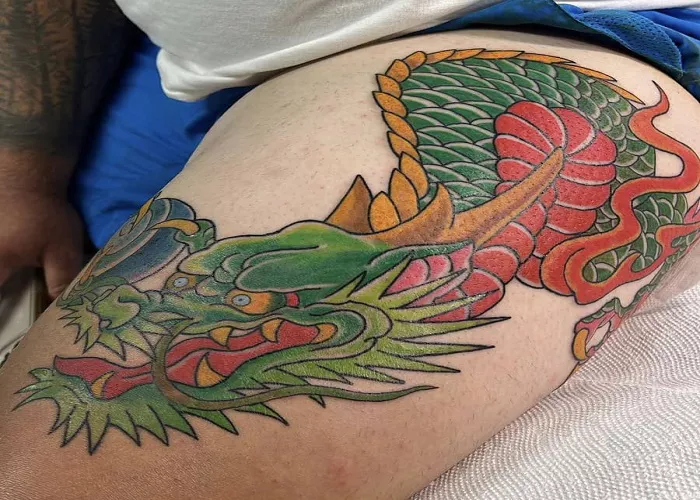When Rolin Jones, the showrunner of AMC’s Anne Rice’s Interview With the Vampire, saw photos of a tattoo inspired by his own writing, he was both horrified and humbled. The tattoo in question? A line from the show’s pilot episode that Jones penned himself, not Anne Rice, the legendary author whose novels inspired the series.
The line, which reads, “Be all the beautiful things you are and be them without apology, for all eternity,” has now become a permanent part of some devoted fans’ lives. These words, a variation of which appear in different drafts of the pilot, have been inked on multiple bodies — a fact that left Jones both bewildered and reflective.
Initially, his reaction was disbelief. “Well, that must be fake,” he said when he first saw one of the photos. Upon discovering a second tattoo of the same phrase, he couldn’t help but mutter, “Oh, dear.” His initial horror quickly morphed into concern, and in a mix of humor and regret, Jones contemplated offering the tattooed fans money to remove the ink.
In his musings, Jones compared the tattoos to other regrettable body art, like the Where’s the Beef tattoo he once saw on a man at Casey’s Tavern in Woodland Hills. “I tell them to consider the inevitable moment years from now,” he reflected, imagining the moment when these fans might look at their ink and question the permanence of their decisions.
Yet, despite the humor, there’s a deeper humility that accompanies the unexpected reality of fans permanently tattooing his work. “These beautifully unwell fans we have,” Jones remarked, “they’ve taken the thing we wrote (from Anne’s lovely novels) and made it a permanent part of their lives.” He noted that these fans, mostly young, carry the words with them wherever they go — a dedication that reminds him of his own youthful passion for art and the things he loved.
While Jones jokingly questions the deeper philosophical meaning behind his own line, Google’s AI generated an analysis, attributing the phrase to Lestat de Lioncourt, one of the key characters in Interview With the Vampire. The AI interpreted the line as an expression of authenticity and self-acceptance, resonating with universal human desires to embrace one’s true self.
Jones, however, humbly notes that when he wrote the line, he wasn’t thinking of any grand philosophical message. Instead, he was trying to help the vampire Lestat get himself out of a tight situation in the show, after committing the crime of murdering two priests. It was a moment of character development — a plea for Lestat to be “seen.”
Despite the horror of seeing his words inked onto skin, Jones can’t help but appreciate the intense connection between his writing and the fans. These tattoos serve as a testament to the impact the show has had, turning fleeting lines of dialogue into lasting symbols for viewers who feel deeply connected to the story.
Jones concludes by reflecting on the meaning of fandom: “They remind me of when I was young. When I loved things with that kind of intensity.” Whether it’s the tattoos or the fervor with which fans embrace the world of Interview With the Vampire, there’s no denying that the connection is powerful — and a bit humbling for the show’s creator.
Related topics:

